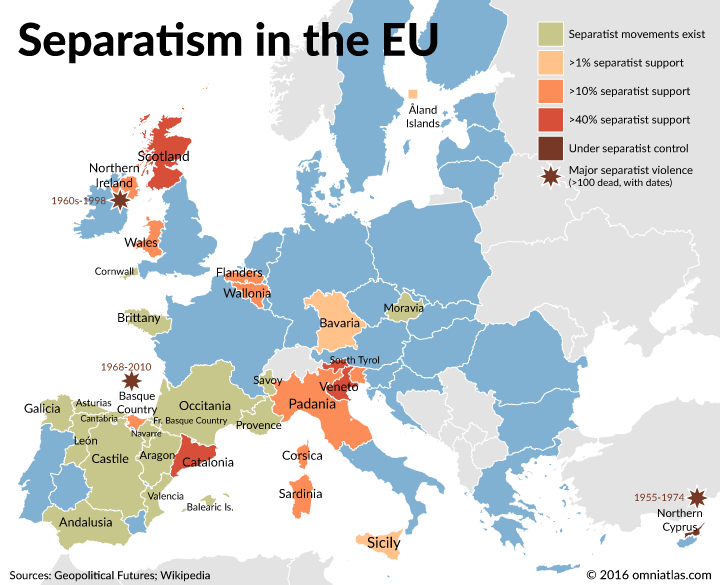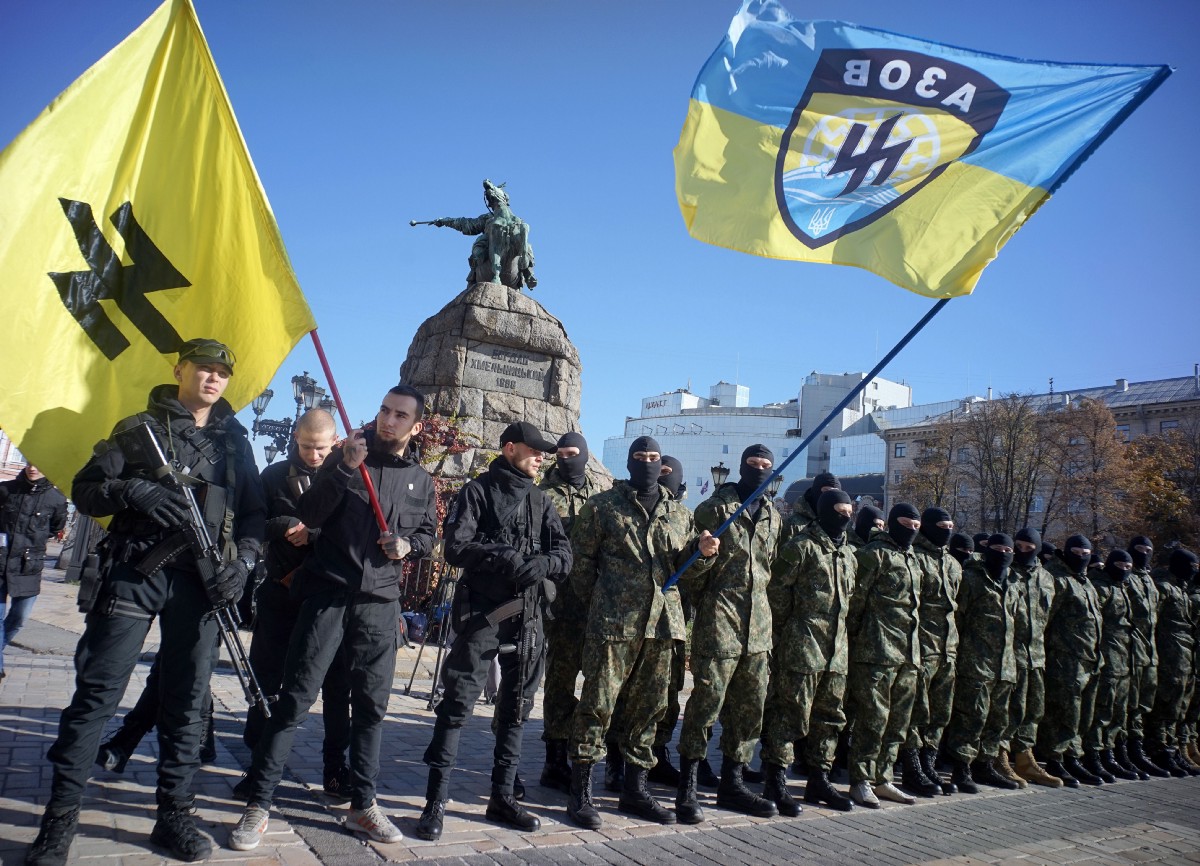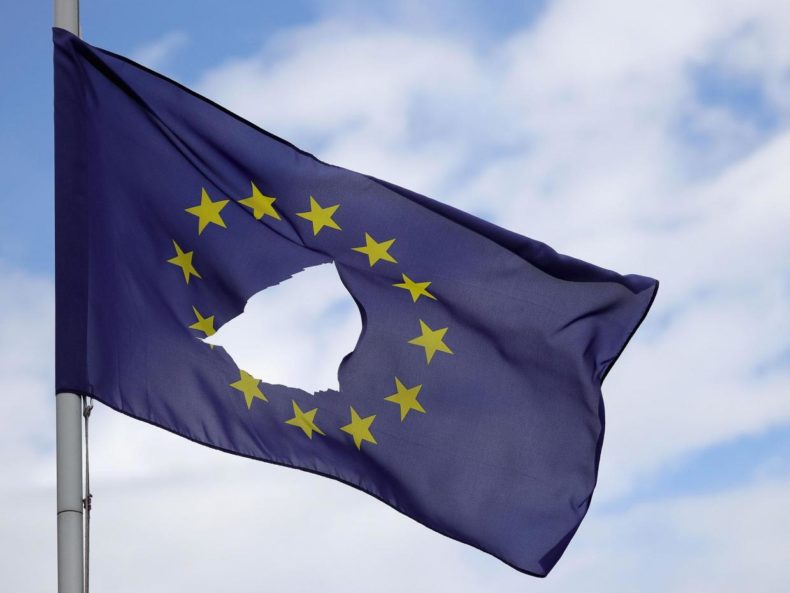
Views: 3452
After all the initial eu(ro)phoria and hopes placed upon the original concept of a non-aligned, social-democratic Euro-bloc, the reality has turned out somewhat differently.
In a pamphlet written in 2011 – Europe: The Unfinished Project – I wrote:
At the present time the EU project seems to be stuck in no-man’s land, unable to press ahead with full political integration, or retreat back into a northern European protectionist Deutschmark zone, and leaving the peripheral member states to the tender mercies of unfettered, globalized capitalism. However there seems to be a sufficient residue of the original EU idealism in the present stage of development to persevere further with the political struggle taking place.” Ibid, page 19
I believe that this view, which seemed justifiable and plausible enough at the time of writing, has now become difficult to sustain. And the reason for this came in the next sentence, viz.
One only has to consider the Anglo-American alternatives (to the Euro model) and globalization more generally to make this choice.”
This statement was, however, based on the tacit assumption that the Euro model of capitalism was somehow fundamentally different from the Atlanticist model, a paradigm exemplified by the US/UK axis. In the fullness of time this has, unfortunately, turned out to be a fundamental misconception. The UK of course has always been bound hand and foot to the US in terms of both foreign and economic policy with the ending of the system of imperial preference demanded by the US as the quid pro quo for the American loan negotiated by Keynes in 1946; next came the American intervention in the Suez crisis in 1956 which effectively ended any independent UK foreign policy. This dog-like devotion to American imperatives – the “special-relationship” – then extended with the neo-liberal turn and the Reagan-Thatcher counter-revolution of the 198Os. True, the UK was always more Atlanticist in its outlook than its European neighbours. However, continental Europe is as enamoured of Atlanticism as is the UK – and those more recent EU ex-communist states, probably more so.
It is not only the UK which is Atlanticist, the continental European states are no less so … proof of this is given by the central position of NATO in this political construction. That a military alliance with a country outside the union (the US) has been integrated de facto into the European constitution – in terms of a common foreign and security policy – constitutes an unparalleled anomaly. For some European countries (Poland, Hungary and the Baltic States) NATO’s protection – that is, that of the United States against their ‘Russian enemy’ is more important than their adhesion to the European Union.” Samir Amin – The Implosion of Capitalism, 2014
This Americanization of Europe – this invisible annexation – has been achieved by a combination of soft and hard power – a cultural, political, economic and militaristic assimilation of the old world by the new. It should be understood that the US does
not do ‘partnerships’; any relationships the US enters into with other states is always on the basis of ‘Me Tarzan, You Jane.’
It follows from this that the neither the European Union nor any of its component states any longer have an independent foreign policy. The facts show that there is one single reality: alignment behind whatever Washington (perhaps in agreement with London) decides on its own.” Amin – Ibid
European Economic policy is similarly aligned to US interests and US practises. This is hardly surprising since the US has been the dominant economic force (although now in a declining trajectory) for the last 100 years. It has control of the world’s reserve currency which allows it to run persistent deficits on its current account since it can simply pay for its imports with by printing its own currency. The US also tends to dominate the multilateral institutions such as the IMF and WTO, having the largest bloc of votes in the IMF. American policymakers have used their influence in the IMF to pursue American financial and foreign policy objectives. The IMF offers larger loans to countries heavily indebted to American commercial banks than to other countries. In addition, the IMF offers larger loans to governments closely allied to the United States. (International Politics (2004) 41, 415–429). New York is the second largest financial centre (after London) with the most deeply liquid capital markets, and in absolute terms the US is largest economy in the world. (Although in terms of purchasing power parity, the Chinese economy is now larger.)
Additionally, the ‘soft power’ the US (and UK) which includes, university economics departments, economic think-tanks, publications – The Wall Street Journal, Financial Times, The Economist – Business and Financial circles, and the universal language of business and diplomacy – English – have effectively dominated and structured the global ideological discourse. The ‘Washington Consensus’ along with the deadly weapons of financial mass destruction – the lethal derivatives – have come to dictate policy and policy making the western world. Recently, however, the neo-liberal, neo-conservative project has run into difficulties as instanced in the twin crises now besetting the Euro-Atlanticist bloc: namely, Greece and Ukraine.
Greece
At the outset it was wholly predictable that the accession of Greece into the eurozone was going to lead to trouble. In order to qualify for admission Greece needed to demonstrate that it conformed to the Maastricht Criteria. The Maastricht rules threaten to slap hefty fines on euro member countries that exceed the budget deficit limit of three percent of gross domestic product. Total government debt mustn’t exceed 60 percent of GDP.
The Greeks had never managed to stick to the 60 percent debt limit, and they only adhered to the three percent deficit ceiling with the help of blatant balance sheet cosmetics.
Not to worry, in 2010 some creative accounting was supplied by the premier (infamous?) US Investment Bank, Goldman Sachs. GS’s selling point for financial legerdemain is well known; in this instance cross-currency swaps where government debt issued in dollars and yen was swapped for euro debt for a certain period – and then exchanged back into the original currencies at a later date. Hey, presto! The figures added up (for a while at least). Goldman Sachs collected a $15 billion kickback for their labours.
As members of the eurozone the Greeks then had access to cheap credit from eurozone banks, particularly French and German. But any deal between borrower and lender means that both should act responsibly. The creditworthiness of the borrower has to be assessed before the loan is made. But such rigorous investigations of this sort were not carried out; with the deregulation of finance such tiresome procedures had been done away with and banks lent to almost anyone who had a pulse.
The rest as we say is history.
But if these lenders knew that borrowers would not be able to repay the loans, this would have amounted to ‘odious’ debt’. That occurs when the national debt incurred by a regime for purposes that do not serve the best interests of the nation, should not be enforceable. Vulture capitalism is another equally unprepossessing term for the policy toward Greece. Vulture funds target distressed firms or countries buy their the bonds and stocks at knock-down prices, then when the company fails, sue the owner not only for the interest but also the principal. The Troika policy toward Greece has been one of Loan and Foreclosure.
If Greece remains in the eurozone it will continue to be bled white, privatised and ultimately dismembered. An example must be made to stop others in the southern periphery from getting ideas. And just as Thatcher was the junior partner of Reagan in shaping the EU, Merkel has been Obama’s enforcer in the Euro’s restive US provinces.
It is interesting to note that one, Victoria Nuland, rabid neo-con – more of which below – Assistant Secretary of State for European and Eurasian Affairs at the United States Department of State, visited Athens on 17 March and had talks with Tsipras regarding the turmoil. Suffice it to say it was geopolitics and the retention of Greece in the EU and NATO she was concerned with, rather than debt. She no doubt reminded Tsipras that there might be consequences if Greece did not toe the EU line. As Assistant Secretary for regime change in the State Department the redoubtable Ms Nuland’s brief has been to threaten or bring about regime change in countries of which the US and its vassals disapprove.
Ukraine
Earlier the peripatetic Ms Nuland was also busy in Ukraine promoting regime change – a process which had been going on since 2004 – and the installation of an oligarch-fascist regime paid for ($5 billion according to Ms N) and whose leaders were hand-picked by herself and the US Ambassador in Kiev Geoffrey Pyatt. (I have written extensively on this issue in Chartist available as an e-book on the website.) But it is interesting to note how the IMF’s treatment of the Kiev regime differs significantly to that meted out to Greece. Firstly a $40 billion aid package is granted to Ukraine over the next 4 years.
Secondly Madame Lagarde has stated that:
In the event that a negotiated settlement with private creditors is not reached and the country determines that it cannot service its debt, the Fund can lend to Ukraine consistent with its Lending-into- Arrears Policy” 12 June 2015
In other words if Ukraine defaults, and there is a strong possibility that the IMF will – in violation of its constitution – come up with the cash. Moreover, the IMF is also not mandated to lend to states which are at war. Of course, this is hardly even-handed way of operating, but then the IMF is a highly politicised institution and a key part of the neo-liberal, neo-conservative global establishment. Blatant confirmation of this politicisation of the IMF was occasioned by Kiev’s outright default on a $3 billion loan from Russia negotiated in 2013 before the Maidan. Customarily sovereign loans between states are sacrosanct: they must be paid or at the very least restructured. But the flat-out refusal by Kiev to repay its debt to Moscow was a flagrant default.
At that point the entire program to resurrect the Ukrainian economy, along with the most recent loan agreement, would go off the rails. And that would be unacceptable, since the biggest shareholder is insistent that the IMF support the regime in Kiev unconditionally. The IMF even went so far to change its constitution to allow this political jiggery-pokery to take place.
Changing its rules to clear the path for the IMF to make loans to Ukraine and other governments in default of debts owed to official lenders is rightly seen as an escalation of America’s New Cold War against Russia and also its anti-China strategy.” Michael Hudson – Counterpunch – December 2015
Conclusions
The decision to expand the EU and with it NATO right up to Russia’s borders, initially under the guidance and policies of the Clinton administration, was a clear indication that the governments of the EU had come under American domination. With this decisive shift the EU project – i.e., from the quasi-Gaullist, third force in world politics, and the Delors social chapter – was over. It has been replaced by a North Atlantic neo-liberal, neo-conservative project under American command. The hegemonist strategy of the US – made abundantly clear in both the Wolfowitz doctrine and the more recent enunciations and actions of the dominant US war party, a coalition of neo-cons, liberal hawks and liberal interventionists – is clearlyvisible behind the disappearance of the European project.
However it is quite possible that even against US wishes and geopolitical imperatives the EU might well fracture internally due to inter-state tensions and contradictions. One thing is certain: in its present structure the EU cannot endure, nor does it deserve to.
Originally published on 2016-11-25
Author: Frank
Source: Off Guardian
Origins of images: Facebook, Twitter, Wikimedia, Wikipedia, Flickr, Google, Imageinjection, Public Domain & Pinterest.
Read our Disclaimer/Legal Statement!
Donate to Support Us
We would like to ask you to consider a small donation to help our team keep working. We accept no advertising and rely only on you, our readers, to keep us digging the truth on history, global politics, and international relations.
FOLLOW US ON OUR SOCIAL PLATFORMS










